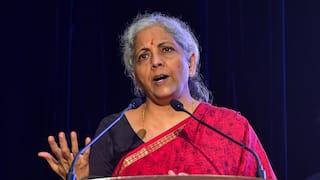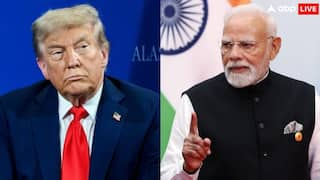Common Man Likely To Suffer More As Inflation Burning Hole In Pocket
The cylinder got dearer by Rs 50 while the prices of petrol and diesel have risen by 80 paise each per litre

New Delhi: The common man is likely to suffer more with the rising prices of commodities with the most recent blow being the rise in the price of the domestic cooking gas cylinder (LPG). The cylinder got dearer by Rs 50 while the prices of petrol and diesel have risen by 80 paise each per litre.
Notably, this is 2022's first hike. The common man got a breather for at least 137 days as in that period there was no change in the prices. On November 4, the central government had slashed the prices of petrol and diesel by Rs 5 and Rs 10 respectively, by reducing excise duty on the fuels, just two months before the poll body announced the dates for the Assembly elections in the five states of Uttar Pradesh, Punjab, Uttarakhand, Manipur, and Goa.
Now, just 12 days after the announcement of the results, the prices have again started picking up pace. Pertinently, it is the 27th day of the Ukraine-Russia war which too has had its impact, globally, on inflation. Accordingly, the increase in the selling price, which includes state levies, central excise and cess amongst other factors, came days after an astronomical rise in crude oil prices due to the war.
In Delhi, the prices of petrol and diesel increased by 80 paise per litre. As per pump prices, petrol now costs Rs 87.47 per litre and diesel Rs 96.21 per litre in the national capital. The OMCs revise the transportation fuel cost based on various factors such as rupee to US Dollar exchange rate, cost of crude oil and demand for fuel amongst others. Resultantly, the final price includes excise duty, value added tax and dealer's commission.
It was widely expected that the OMCs will revise the current prices due to high crude oil cost. Lately, crude oil prices have been volatile surging by nearly 35-40 per cent on fear of tight supplies. Furthermore, it is feared that current sanctions against Russia will curtail more global supplies and stifle growth.
In the case of India, the crude oil price range is a cause of concern as it may ultimately add Rs 15-Rs 25 in petrol and diesel selling prices. At present, India imports nearly 85 per cent of its crude oil requirements.
It is not just the petrol, diesel or LPG cylinder, several other daily use commodities have shown an upward trajectory for the past some time. On March 5, milk brand Mother Dairy announced an increase in the milk price by Rs 2 per litre in Delhi NCR area. The milk brand has said that the price has been increased because of the rise in the procurement cost. The brand announced the price hike days after Amul and Parag Milk Foods increased prices by Rs 2 per litre each. After the price increase, the full cream Mother Dairy milk will cost Rs 59 per litre and toned milk price will rise to Rs 49 per litre. Currently, full cream milk costs Rs 57 per litre and toned milk costs Rs 47 per litre in Delhi NCR.
On March 8, the Compressed Natural Gas (CNG) price in the national capital and adjoining cities was hiked by Rs 0.50 per kg while in Noida, Greater Noida, and Ghaziabad, it got dearer by Re 1. Just a week back, Nestle's Maggi's price was also hiked by Rs 2. The packet which used to cost Rs 12, is now Rs 14. Even the prices of tea and coffee have risen.
Congress leader Rahul Gandhi just a few days ago asked the government to act quickly over the rising inflation in the country as the Russia-Ukraine war may further escalate prices. "Record price rise had crushed the poor and middle class even before the Ukraine war began. It will increase further," the Congress leader said in a tweet. He said that the government must 'act now' and 'protect the people'.
Sharing data on the prices of commodities, Gandhi said that food prices are expected to rise by 22 per cent, crude oil is more than $100 per barrel, while Covid continues to disrupt the global supply chain.
Meanwhile, the upper house of Parliament, on Tuesday saw an uproar over the hike in LPG prices, following which the Speaker was forced to adjourn the House twice.





































